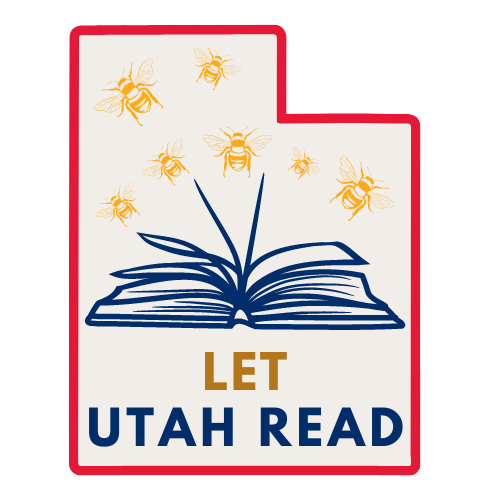Bhavika Malik Speech at Jan 25, 2023 Read-In
This is the second post in a short series where we’re sharing (with permission!) some of the speeches given at our recent read-in event at the Utah State Capitol.
Today’s speech is from Bhavika Malik, a junior from Herriman High. Her work has been published in Polyester Zine, Brown Girl Magazine, and more. Thank you for sharing with us, Bhavika!
My first month in Salt Lake City, and this country, was also my first month publishing writing on the internet. My dad was proud. But through a confusingly long sentence and a lot of yelling he also told me he was afraid. He was afraid that by expressing my criticism of American media or education systems, I would lead myself into trouble. He said that I do not have the right to critique a country that officially labels me “alien” in its government records. That if any of my articles land in the wrong crowds I could ruin my future. Maybe that threat was real, and maybe it still is, or maybe it never existed.
But, looking back at these perceived dangers my dad saw in my writing helps me understand how censorship is a struggle for power. And today we battle a struggle to homogenize education under those same rhetorics that have existed since colonialism, and since the conception of this country.
America, between slavery and imperialism, has created a longstanding tradition of suppressing the voices of its most vulnerable groups. Platforming voices that challenge the dominant views about race, sexuality, or gender, undermine these systemic hierarchies. And the laws implemented in Utah today are just another scramble to protect these systems of oppression.
Organizations such as Utah Parents United frame censorship as upholding the moral obligations of education systems. I want to ask them, what is this moral responsibility that goes against the needs of more than half of the students in Utah? What is this moral responsibility that disenfranchises any perspectives that do not fit the standards of whiteness and straightness? What are these moral responsibilities that want to simultaneously protect children’s innocence and also shame us for our own lived experiences? How is this innocence corrupted by Black and Brown bodies represented in the libraries?
The only people perverting our reality, then, are you.
For students such as myself, HB-374 has proven once again that people of color and LGBTQ+ groups are still in a scrimmage with governments and education systems that reduce us to politics.
Why are we exposed to dehumanizing comments about our race and sexuality? And removed from library shelves? Why are we forced to stand behind these podiums and prove that we are not a threat? Tell us why our innocence isn’t important to you?
Removing writing from the libraries also means that we are deliberately reducing students’ ability to recount their experiences. Censorship limits the vocabulary necessary to confront important and uncomfortable aspects of life.
Without a book like The Bluest Eye by Toni Morrison, I could have never been able to understand how whiteness seeps into my perception of beauty. And without the poetry of Meena Kandasamy, I could never describe the impact of rape culture on Indian women such as myself.
Today, I am not only speaking against censorship: I am also fighting the restrictions placed on my capacity to self-advocate.
As Joan Didion said, “we tell ourselves stories to live.” And these stories — the ones under scrutiny by school boards — are the ones reminding us that we matter. These stories, the ones blooming with different cultures, peoples, love and lovers, are helping bridge a gap in representation. When we view books through such a narrow lens, we are claiming ownership over narratives that were never ours to begin with. We should not have to prove ourselves worthy enough to have a voice, whether that is in schools, legislations, or books.

